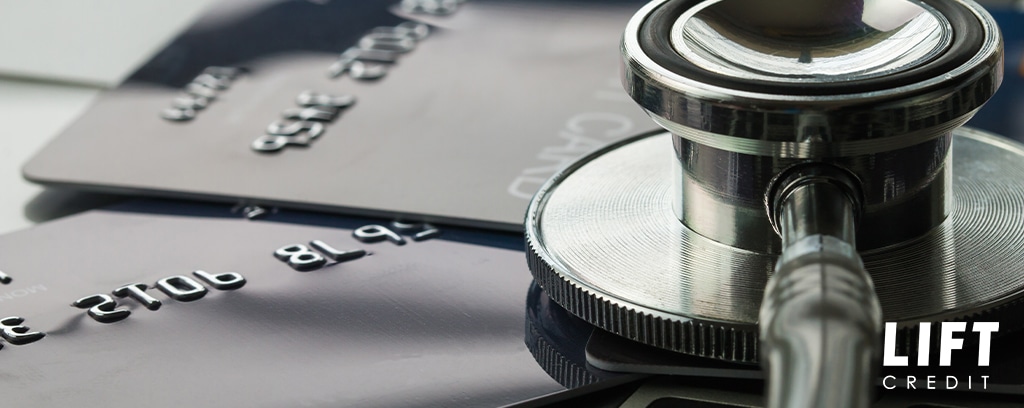With credit scores being one of the cornerstones of receiving home and auto loans, apartment leases and some pre-employment screenings, it’s important to understand the meaning of your FICO score, and how to manage it.
A credit score is a numerical assessment of the risk that lenders are taking in loaning you money.
Experian, Transunion, and Equifax are credit bureaus that track and gather information on your payment history. Your FICO credit score is calculated using an algorithm from Fair, Isaac, and Company (FICO for short) that takes information from one of those three credit bureaus, generates a number, and spits out your credit score. Scores can range from 850 (perfect credit) all the way down to 300 (perfectly terrible credit).
FICO’s algorithm gives out a mortgage score, an auto score, a bankcard score, and so on and so forth. Your score in any of these categories will be different depending on which bureau originated it; for example, your Experian or your TransUnion score will be different from your Equifax score. FICO scores won’t generate until you have at least six months of credit history.
The five factors that affect your score are as follows:
1. Payment history
35% of your FICO score
People with the best credit scores have an extensive history of on-time payments. Missed payments, delinquencies, collections, and other negative marks will lower your score, but not permanently; bad marks fall off after 7 years.
Unfortunately, paying utilities and rent don’t contribute to your score. FICO doesn’t consider them because they aren’t counted as lines of credit (also known as “tradelines”). They can, however, affect your score negatively if they get passed on to a collections agency.
The best indicator of whether someone will pay their bill on time is how well they’ve done so in the past, which is why this category is weighted the heaviest.
2. Amounts owed
30% of your FICO score
Also called credit utilization, this factor is calculated using the following:
-The total amount of credit available to you vs. the total balance owed on your accounts
-The number of accounts you have with balances
-Original loan amounts on installment loan accounts (usually car, home) vs. the current loan balances
Since most banks and credit unions report statement balances to the bureaus, you can safely assume that your credit utilization is calculated using the most recent statement balances. This is important because utilization does not have a “history.” They do not calculate your “average utilization”; it is solely based on the most recent reports sent by your financial institutions, so really it is only a snapshot of your liabilities. This means it can skyrocket or tank in the span of about a month, so you can generally ignore utilization until a month or two before applying for a new line of credit.
If you are above 30% of your credit limit, lenders may consider you to be high risk (for example, if you owe more than $3,000 on a credit card with a $10,000 limit). A statement with a 30% utilization will hurt your score until a lower balance is reported. Since utilization has no memory, that would be only a temporary problem, but it is generally advised to pay down debts and keep balances low to avoid paying interest and incurring balances you can’t pay off.
3. Length of credit history
15% of your FICO score
The longer you have been managing credit, the more experience you have with making payments on time and dealing with financial institutions, which helps lenders view you as less of a risk. Length of history takes into account the age of your oldest tradeline, the age of your newest tradeline, and Average Age of Accounts, or AAoA.
All of your tradelines, both open and closed, contribute to your AAoA. Closed accounts will stop contributing to your AAoA after they’ve been closed for 10 years. If you’ve had a credit card for 15 years that you don’t use, it’s in good standing, and it’s your oldest account, it may make sense to keep the account open for its length of history.
4. Credit-seeking activity
10% of your FICO score
Statistically, FICO considers consumers that apply for a bunch of credit over a short period of time to be higher risk. It makes sense, because the more new accounts you have to manage, the more likely it is that you’ll miss a payment.
Each time you apply for credit to be extended to you, you receive what’s referred to as a “hard inquiry.” These result in a hit of about 5 points to your score, which will stay there for one year, and the inquiry will fall off after two years. Hard inquiries by themselves shouldn’t be a big deal, but if you have too many in a short period of time, it will drag your score down. FICO recognizes that shopping around is a money-saving habit, and distinguishes this from credit-seeking habits by rewarding you with a 45-day grace period to shop around for the best auto loans or mortgage rates and have it count as only one hard inquiry (this grace period is not extended to credit cards).
Some companies will pull your credit report without the express intent of extending you credit (pre-approvals for cards or loans, or for information), which results in a “soft inquiry.” These don’t affect your score, and lenders don’t consider them, but you may see them on your report for up to two years.
5. Types of Credit in use
10% of your FICO score
Having a diverse mix of account types is favorable. A combination of installment loan accounts and revolving credit can boost your score slightly, since the lender can see you’ve dealt with varying types of tradelines.
The number of each type of account is factored in; for instance, more than two auto loans in your name can actually be detrimental, since the lender can see you’ll have to manage payment on several accounts. Two or three credit cards are advised, as well as two installment accounts.
Generally, credit cards are sufficient tools for building credit history. This category is weighted low, so if you don’t have any accounts outside of revolving credit, don’t stress. It is never wise to take out a loan simply to boost your credit score.









